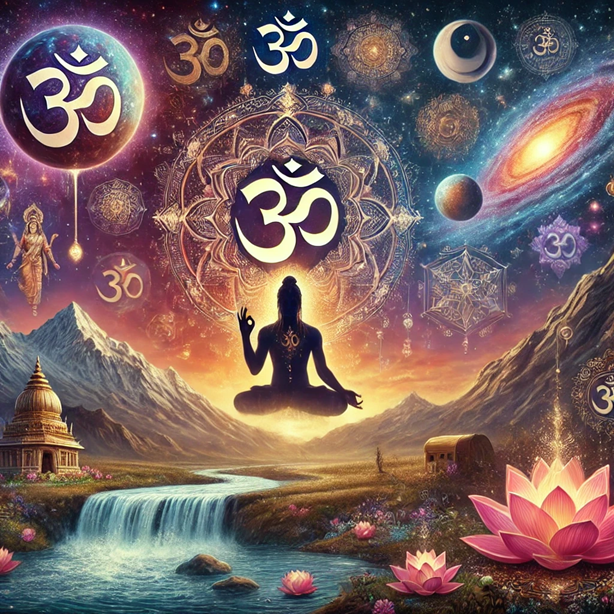Hindu philosophy is the law of Karma!
Hinduism encompasses a vast array of practices and beliefs, making it difficult to define in a singular way. Jainism, Buddhism, and Sikhism, the three other major Indian religions, have their origins in Hinduism and share historical and conceptual ties.
Unlike many other religions, Hinduism cannot be traced to a single founder, a single scripture, or a universally agreed-upon set of teachings. Over its long history, numerous influential figures with diverse teachings and philosophies have contributed to its development, producing a multitude of holy texts.
Hinduism is often considered more of a ‘way of life’ or a ‘family of religions’ rather than a single religion, due to its incorporation of a wide range of religious ideas. It includes both monotheistic (belief in one God) and polytheistic (belief in many gods) elements. The one Ultimate Reality or Supreme Being, known as Brahman, is also manifest in the deities of the Creator (Brahma), the Sustainer (Vishnu), and the Destroyer (Shiva). The Four Vedas, regarded as divine in origin, are considered direct transmissions of God’s word, rather than being conveyed through a prophet.
Hindu beliefs, codes of conduct, and social practices are derived from a broad collection of philosophical literature and scriptures, including the Vedas, the Upanishads, the Brahma Sutras, the Bhagavad Gita, and the epics Ramayana and Mahabharata—the latter being roughly six times the length of the Bible. Generally, one is recognized as a Hindu by being born into a Hindu family and practicing the faith, or by declaring oneself a Hindu. There is no formal process for conversion to or excommunication from Hinduism.
Hindus view the entire universe as God’s creation, and everything within it as an expression of God. They believe that each person is inherently divine, and the purpose of life is to seek and realize divinity within all of us.
Key Beliefs:
Sanatana Dharma embodies a set of eternal and universal ethical and moral principles that guide a virtuous and truthful way of living, applicable to everyone, regardless of whether they are born Hindu. The Hindu ethical framework places significant emphasis on values like truth, righteousness, love, peace, and non-violence. It posits that our beliefs shape our thoughts and attitudes, which in turn direct our actions, ultimately shaping our destiny. All Hindu ceremonies, rituals, and acts of worship conclude with a prayer for universal peace and harmony.
A central concept in Hindu philosophy is the law of karma—the principle of cause and effect, where every action generates a reaction that will be experienced in this life or the next. Life is viewed as a continuous process, with the essential life energy never being destroyed. Death is seen not as the end of life, but as part of the life process. Consequently, Hindus believe in samsara, the cycle of birth, death, and rebirth, which continues until the individual soul, through self-realization of its inherent divinity, merges with the Absolute and achieves moksha, or liberation from the cycle of rebirth. Hindus accept, based on scriptural authority, that self-realization is attainable within one’s lifetime, and indeed, it is considered the ultimate goal and destiny of all life.
Note from Publisher:
The information provided on this site is intended for informational and educational purposes, and we strive to offer our viewers accurate and reliable content. Given the ancient and diverse nature of Hinduism, there may be variations in the interpretations and views presented by different authors. If you come across any conflicting information, please bring it to our attention, and we will make every effort to investigate and update the content as needed. Thank you for your understanding. Management.

